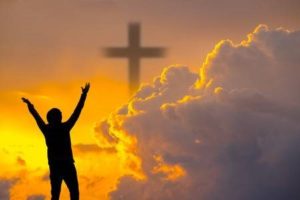SSCORRE!
Saint Sophia Cathedral
Online Resources for our Religious Edification

Topic of the Week –
How to Deal with Crisis in a Spiritual Manner
“…God does not wish to make people suffer, neither does He cooperate with the tribulation which is afflicting us. Hardship, anxiety and suffering never originate from God but are either caused by the devil or by our own actions. Nevertheless, no matter where these come from, the main task is to try to deal with the situation wisely and use it to advance spiritually, by converting the hardship into a blessing…. The aim is not just to survive through a crisis but to change our way of thinking, our minds- i.e. to repent….”
Excerpted from Metropolitan Athanasios of Limassol: How to deal with the crisis in a spiritual manner
Adult/Family:
“Indeed we are presently facing some tough times which affect everyone…. One does not offer consolation, however, by saying that nothing is happening. The correct way is to recognize that we are facing certain hardships and to look for ways to deal with them….
God does not wish to make people suffer, neither does He cooperate with the tribulation which is afflicting us. Hardship, anxiety and suffering never originate from God but are either caused by the devil or by our own actions.Nevertheless, no matter where these come from, the main task is to try to deal with the situation wisely and use it to advance spiritually, by converting the hardship into a blessing….
The issue here is not how to avoid hardship but how to deal with it….. You, the children of the Church, must deal with this hardship and sail through it by placing your only hope on Lord Jesus Christ. There is no one else on whom we should place our hopes….
Of course one may view the current situation in a different light since it may teach us many lessons. Namely, that we are also responsible for the hardships we are currently facing because we have abandoned the proper way of thinking and felt secure in insecure things, in matters which are wrong and shaky. These hardships will also cause some good in the long run. Yet it is true that the first blow causes bitterness and pain.
What can we do now? First and foremost we ought to have faith that the Lord is the One Who governs everything while all those who think that they rule the world have no power…. Evil people may set up schemes; the devil and his followers may cause trouble to people, to whole families, to entire societies, countries and to the whole world; yet, they have no power against their victim unless the Lord permits it….
Therefore, we ought to acquire a deep and unwavering faith that nothing more and nothing less will happen than what God permits. We also ought to recognize that we are also responsible for these hardships; we are suffering because we had been injudicious and thoughtless and had made bad judgments.
Nevertheless, we do need to ask the Lord to come to our rescue by sending us His divine providence. How are we going to do this? When a person stands before the Lord in deep repentance, recognizing his bad behavior and his evil ways and that he was living a frivolous and godless life, and repents and laments, then he will attract the Lord’s providence. All the tribulations take place not only because some people so wished, scheming against us, incited by the devil, but also because we have pushed away the Lord’s providence through our sins and our stupidity. It is known that the further away one steps from the Lord the nearer he comes to the enemy of our salvation and all the more hardships and storms befall on him since he remains without protection in the face of whatever comes before him throughout his life.
In the Old Testament, all the prophets and God’s messengers were asserting that sin was the cause of every hardship. They were also warning that tribulations would befall on the people unless they repented and changed their ways. Yet people took no notice; they were living as they wanted and even were persecuting, rejecting and ridiculing the prophets, asking them not to bother them with worrisome things….
What did such prophets suggest? Certainly they were not suggesting worldly solutions and outlets. They were advocating repentance, return to the Lord and changing of peoples’ ways and thoughts… return to the bosom of Lord the Father in order to attract His providence; then the situation would gradually improve. What we need is not to go back to what we had before; if this happens and we do not change our ways, nothing good will come out of the whole situation.
The aim is not just to survive through a financial and global crisis but to change our way of thinking, our minds- i.e. to repent. Whoever manages this, it means that he has done some proper work on himself and has transformed the present hardship into a spiritual struggle. Unless this happens, we will forget everything and return to our ways when things get better.
Read the entire article Metropolitan Athanasios of Limassol: How to deal with the crisis in a spiritual manner
Preschool:
A short prayer we can say to ask for God’s help and show our love for Him is this one “Lord enlighten my darkness, Lord enlighten my darkness, Lord enlighten my darkness…”
When you are in the dark, such as night time, it is hard to see anything. When we ask God to enlighten our darkness, we are asking him to show us the way to holiness so that we can be closer to Him.
Excerpted from Arrow Prayers – The Morning Offering (ancientfaith.com)
Elementary School:
“He [Saint Paisios] never worried or despaired, even if things seemed difficult and dire. And this was true as much for personal matters and the affairs of those around him as it was for ecclesiastical, national, and international affairs. He saw the increasing activity and dominion of the evil one and his minions, but he knew and assured others that “someone else holds the reins.”
“The devil ploughs,” he would say, “but Christ sows the seeds.”“God,” he believed, “doesn’t let something bad happen unless something good will come out of it, or unless it’ll at least prevent something even worse from happening.”“By the grace of God,” he would say to desperate souls, “everything will be all right.”“There is a God,” he once said to a clergy man with a bleak outlook on the future of Greece. “What have you done with Him?”_____Are there times in your life that you can remember when something ‘bad’ happened to you or someone you know, but something good came out of it?Why did Saint Paisios ask the priest what he had done with God? Do we sometimes forget about God in our own lives?Excerpted from Fr. John Whiteford: St. Paisios the Athonite on Divine Providence
Read also A-Lesson-from-Way-of-a-
Pilgrim.pdf (saintsophiadc.org) Middle/High School:
[Interviewer] Father, with so many problems that we face daily in this life what could we ask God to give us in order to deal with them better?
[Father Elpidios] I think three things are necessary. They are so necessary, that without them I don’t think we could manage to overcome them easily and correctly.And what are these three things?
The first one is enlightenment. We must ask God to give us enlightenment so that we can distinguish right from wrong so that we can understand what is right and what is wrong. Because if you do not know what’s right and what’s wrong how can you know which path to take? Therefore, asking for enlightenment is a great thing.
The second one we must ask for is prudence. It is not enough for God to enlighten you to know what is right and what is wrong. If you do not have the prudence to properly manage what you have learned, what God has revealed to you, the enlightenment He has given you how will you achieve it? Therefore, prudence is a very important thing for a man to have, because with it he can correctly choose the method how to overcome problems. Isn’t that right? Yes, yes.
But there’s also a third one. Let’s say that God gave us enlightenment to know what is good and what is bad. Let’s say that God gave us prudence, to know how to manage it. But if we do not have the strength to do it?
[Interviewer] It will surely be difficult for us.[Father Elpidios] Of course. How many times do some people say to me: “My Father I know what is right, but I do not have the courage to do it, I do not have the strength to do it.” Therefore, it is necessary to ask Him to give us the third one as well, strength.But all these three things enlightenment, prudence and strength are gifts of the Holy Spirit. The Holy Spirit gives enlightenment, the Holy Spirit gives prudence and the Holy Spirit gives us strength.Therefore, a simple advice for those who want to live their lives correctly and have the necessary weapons to overcome difficulties, is to have enlightenment, prudence and strength. However, all these are gifts of the Holy Spirit and we must ask for them from the Holy Spirit every day so that our heavenly Father and God can give them to us.Watch the video Fr. Elpidios Vagianakis: How to deal with our problems correctly
A Message from Maria Spanos
I am passionate about our Orthodox Christian faith and seek to help others learn as much as they can about it. My purpose here is to share online resources that help strengthen our relationship with Christ and bind us closer to His Church. I believe they are invaluable in learning about our precious Orthodox Tradition, and are a great aid for teaching family members, friends and others about Orthodoxy. ~Maria
Two of my favorite quotes:
 “A true Christian behaves in this life so that it may be a preparation for the future one and not only a life here below. In his actions, he does not think what will be said of him here but of what will be said there in heaven; he represents to himself that he is always in the presence of God, of the angels and all the saints, and remembers that someday they will bear witness of his thoughts, words, and deeds.” — Saint John of Kronstadt
“A true Christian behaves in this life so that it may be a preparation for the future one and not only a life here below. In his actions, he does not think what will be said of him here but of what will be said there in heaven; he represents to himself that he is always in the presence of God, of the angels and all the saints, and remembers that someday they will bear witness of his thoughts, words, and deeds.” — Saint John of Kronstadt
__________________________________________________________

“Of all the holy works, the education of children is the most holy.”
— St. Theophan the Recluse






